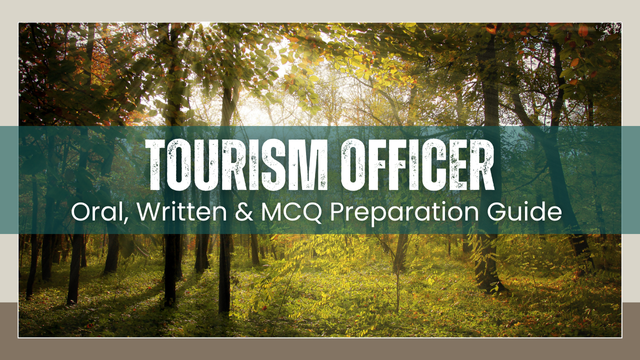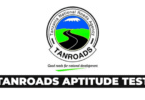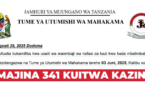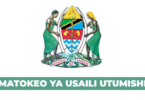Are you preparing for a Tourism Officer job interview or recruitment exam in 2025? Whether you’re applying to a government institution, local authority, or tourism board, the process often includes oral interviews, written tests, and sometimes multiple-choice questions (MCQs).
Tourism Officers play a vital role in promoting destinations, developing strategies, preserving cultural heritage, supporting community-based tourism, and ensuring sustainable growth. To succeed in your application, you need to prepare for all aspects of the interview and assessment process. This guide combines oral interview Q&A, written/theory-based questions, and MCQs to give you a complete preparation toolkit.
General Interview Questions
- Tell us about yourself and your background in tourism.
Sample Answer:
“I hold a degree in Tourism and Hospitality Management and have over four years of experience working in destination marketing and visitor services. I am passionate about promoting cultural heritage and sustainable tourism, and I have successfully managed tourism projects that increased visitor numbers while preserving community values.” - Why do you want to work as a Tourism Officer in this institution?
Sample Answer:
“This institution has a strong reputation for promoting cultural heritage and sustainable tourism. I want to contribute my skills in destination marketing and community engagement to help position our country as a leading tourism destination in Africa.” - What do you know about our organization and its tourism strategy?
Sample Answer:
“I have reviewed your Tourism Development Strategy 2025, which emphasizes sustainable tourism, eco-tourism, and community involvement. I admire your focus on preserving natural and cultural heritage while boosting economic growth.” - What are your greatest strengths as a tourism professional?
Sample Answer:
“I excel in communication, stakeholder engagement, and strategic tourism planning. My ability to build partnerships with local communities, tour operators, and international agencies helps create impactful tourism programs.” - What is your biggest weakness, and how are you working to improve it?
Sample Answer:
“I used to focus too much on details, which slowed down decision-making. I have since improved by prioritizing tasks and delegating where necessary to maintain efficiency.”
Tourism-Specific Questions
- How would you promote a new tourist destination in 2025?
Sample Answer:
“I would combine digital marketing with on-the-ground engagement. This includes leveraging social media campaigns, collaborating with travel influencers, and using data-driven strategies like SEO and virtual tours to attract international visitors.” - What role does sustainable tourism play in your work?
Sample Answer:
“Sustainability is central to tourism today. I would ensure projects respect local cultures, protect natural resources, and provide long-term economic benefits to host communities.” - How would you handle conflict between local communities and tourism developers?
Sample Answer:
“I would create dialogue platforms where both parties express their concerns, then work on agreements that balance development with community needs. This helps avoid conflicts and ensures tourism growth benefits all stakeholders.” - How would you attract international tourists to this country/region?
Sample Answer:
“I would highlight unique selling points such as cultural heritage, wildlife, eco-tourism, and festivals. Collaborating with airlines, embassies, and online platforms would also enhance visibility.” - How do you ensure excellent visitor experiences?
Sample Answer:
“By focusing on customer service training, providing clear information, ensuring safety standards, and gathering regular visitor feedback for continuous improvement.”
Behavioral & Situational Questions
- Describe a successful tourism project you have managed.
Sample Answer:
“I led a community-based tourism initiative where local artisans showcased their crafts to tourists. This project boosted local incomes by 40% while enriching the visitor experience.” - How do you handle high-pressure situations, especially during peak seasons?
Sample Answer:
“I stay organized by prioritizing urgent matters, delegating tasks effectively, and maintaining clear communication with my team to avoid stress.” - Tell us about a time you worked with multiple stakeholders.
Sample Answer:
“I coordinated a regional tourism fair involving government agencies, hotels, and cultural groups. By aligning everyone’s goals, we achieved record visitor attendance.” - If tourist numbers decline, what steps would you take?
Sample Answer:
“I would conduct market research to identify causes, adjust promotional strategies, improve tourist facilities, and develop new attractions to re-engage visitors.” - How do you resolve complaints from tourists?
Sample Answer:
“I listen carefully, acknowledge their concerns, provide immediate solutions if possible, and use feedback to improve future services.”
Future-Oriented & Policy Questions
- What are the biggest challenges facing the tourism industry in 2025?
Sample Answer:
“Challenges include climate change, political instability, over-tourism in certain areas, and the need for digital transformation. Effective policies and smart marketing can help address these.” - How can technology improve tourism services?
Sample Answer:
“Technology offers tools like AI-driven travel assistants, virtual reality tours, online booking platforms, and data analytics that improve both marketing and visitor satisfaction.” - What strategies would you use to promote domestic tourism?
Sample Answer:
“I would introduce affordable packages, highlight cultural festivals, and run awareness campaigns to encourage citizens to explore their own country.” - How would you ensure tourism policies align with national development goals?
Sample Answer:
“I would analyze tourism’s role in job creation, infrastructure development, and cultural preservation, ensuring strategies align with Vision 2030 and sustainable growth plans.” - Where do you see yourself in five years as a Tourism Officer?
Sample Answer:
“In five years, I see myself contributing as a senior tourism strategist, helping shape policies that strengthen our country’s position as a leading tourism hub in Africa.”
B. Written Interview Questions & Model Answers
(These test your technical knowledge, policy understanding, and analytical ability.)
1. Define sustainable tourism and explain its importance for national development.
Model Answer:
Sustainable tourism is tourism that meets the needs of present tourists and host communities while protecting resources for future generations. It is important because it promotes economic growth, cultural preservation, environmental protection, and community participation, which align with national development goals such as job creation, poverty reduction, and heritage conservation.
2. List and explain five challenges facing the tourism sector in 2025.
Model Answer:
- Climate change – affecting natural attractions like beaches and wildlife habitats.
- Over-tourism – leading to cultural and environmental degradation.
- Global competition – with many destinations competing for international tourists.
- Political/health risks – instability, pandemics, and safety concerns reduce arrivals.
- Digital transformation needs – institutions must adopt technology to remain competitive.
3. What strategies can be used to promote domestic tourism in your country?
Model Answer:
- Offering discount packages for locals.
- Promoting cultural festivals, heritage sites, and national parks.
- Strengthening transport and infrastructure to make destinations more accessible.
- Running awareness campaigns encouraging citizens to “explore their own country.”
- Partnering with schools/universities to organize educational tourism trips.
4. Explain the role of a Tourism Officer in enhancing community-based tourism.
Model Answer:
A Tourism Officer ensures community members benefit directly from tourism by:
- Training locals in hospitality and tour guiding.
- Helping communities market their cultural products and experiences.
- Ensuring fair revenue-sharing from tourism projects.
- Promoting eco-friendly practices to protect local environments.
- Acting as a link between government, investors, and communities.
5. Differentiate between eco-tourism and cultural tourism, giving examples.
Model Answer:
- Eco-tourism: Focuses on natural attractions and environmental conservation (e.g., visiting Serengeti National Park).
- Cultural tourism: Focuses on traditions, heritage, and lifestyles of people (e.g., attending Maasai cultural festivals or visiting historical sites like Bagamoyo).
6. Suggest three ways technology can improve tourism management.
Model Answer:
- Online booking systems make it easier for tourists to access services.
- Virtual reality/augmented reality provides virtual tours of attractions.
- Data analytics & AI help institutions track tourist trends and improve planning.
7. Explain how tourism contributes to Tanzania’s (or your country’s) economy.
Model Answer:
Tourism contributes by:
- Generating foreign exchange earnings.
- Creating employment in hotels, transport, and tour services.
- Stimulating infrastructure development (roads, airports).
- Promoting cultural exchange and international cooperation.
- Supporting SMEs such as handicraft shops and local food vendors.
8. Short Essay Question: “Discuss the importance of promoting responsible tourism in 2025.”
Model Answer (Summary):
Responsible tourism ensures that visitors respect cultural values, minimize negative environmental impacts, and support local economies. In 2025, it is crucial due to increasing environmental concerns, climate change, and the need to protect heritage. By promoting responsible practices, tourism officers help guarantee long-term sustainability and a positive reputation for the destination.
C. Multiple Choice Questions (MCQs) – Tourism Officer Written Test
1. Which of the following best defines sustainable tourism?
A) Tourism that generates maximum profit for private investors
B) Tourism that meets present needs without compromising future generations
C) Tourism limited only to eco-parks and forests
D) Tourism focusing only on international tourists
Correct Answer: B
2. The main objective of community-based tourism is:
A) To reduce the role of government in tourism
B) To maximize foreign exchange only
C) To ensure local communities benefit directly from tourism activities
D) To promote luxury hotels and resorts
Correct Answer: C
3. Which of the following is an example of cultural tourism?
A) Visiting a geothermal hot spring
B) Watching the Great Migration in Serengeti
C) Attending a traditional Maasai wedding ceremony
D) Hiking Mount Kilimanjaro
Correct Answer: C
4. Which UN agency is primarily responsible for global tourism development?
A) UNESCO
B) UNWTO
C) UNDP
D) ILO
Correct Answer: B (United Nations World Tourism Organization)
5. Which of the following is NOT a challenge in the tourism sector?
A) Political instability
B) Climate change
C) Improved digital marketing strategies
D) Over-tourism
Correct Answer: C
6. In Tanzania, which ministry oversees tourism development?
A) Ministry of Natural Resources and Tourism
B) Ministry of Foreign Affairs
C) Ministry of Finance
D) Ministry of Industry and Trade
Correct Answer: A
7. What is the primary purpose of eco-tourism?
A) To build more luxury hotels in natural reserves
B) To conserve the environment and provide educational experiences
C) To promote international shopping festivals
D) To focus only on urban city tours
Correct Answer: B
8. Which of the following is a direct economic benefit of tourism?
A) Preservation of wildlife
B) Job creation and foreign exchange earnings
C) Cultural identity promotion
D) Environmental conservation
Correct Answer: B
9. The term “carrying capacity” in tourism refers to:
A) The maximum number of tourists a destination can accommodate without negative impacts
B) The seating capacity of tour buses
C) The number of flights an airport can handle daily
D) The capacity of hotels in a city
Correct Answer: A
10. Which of the following best promotes domestic tourism?
A) Tax exemptions for international airlines
B) High park entry fees for local citizens
C) Discounted holiday packages for residents
D) Limiting local participation in tourism
Correct Answer: C
Final Tips for Success
- For oral interviews: Be confident, give real-life examples, and align answers with national tourism strategies.
- For written tests: Write structured, concise answers using points and examples.
- For MCQs: Read carefully, eliminate wrong answers, and focus on concepts like sustainability, community-based tourism, and policy frameworks.
By mastering oral, written, and multiple-choice preparation, you’ll be fully equipped to succeed in your Tourism Officer interview or recruitment exam in 2025.






